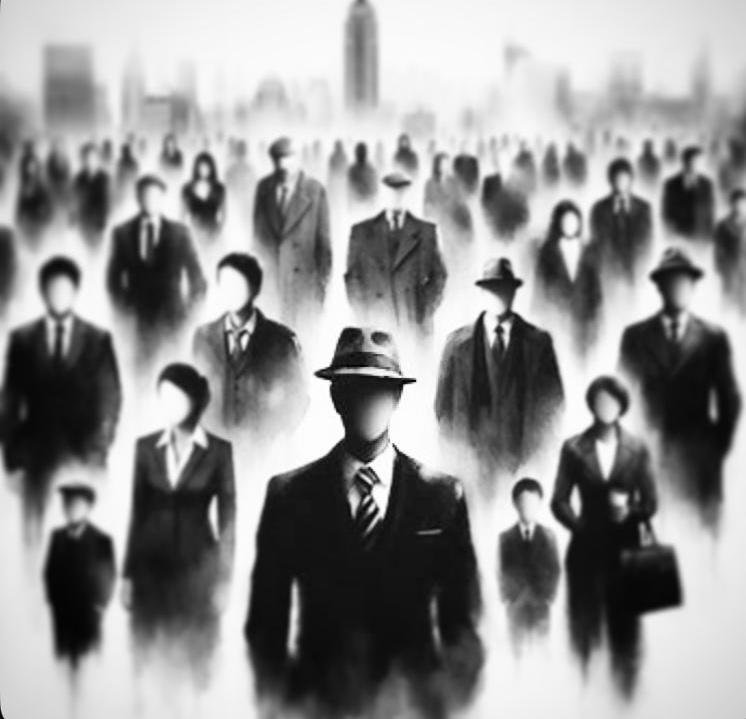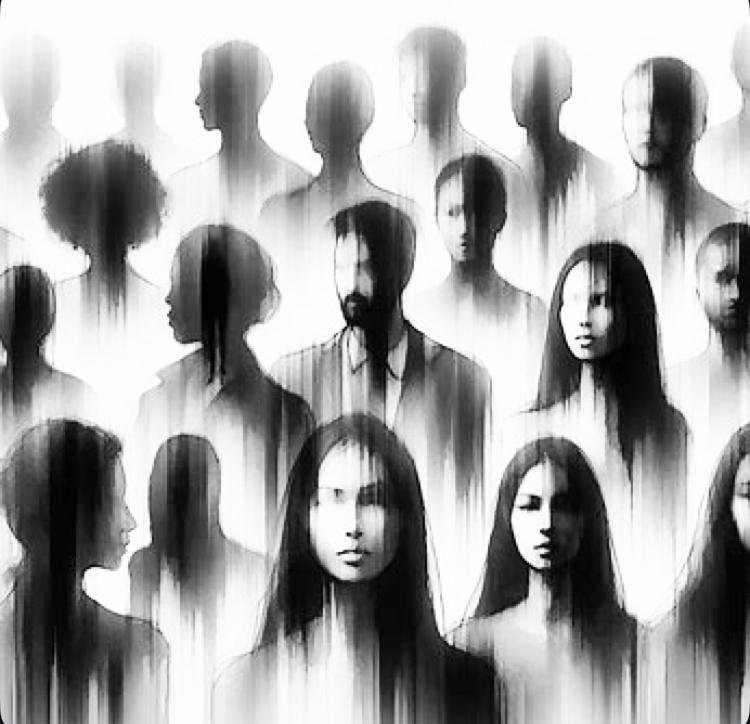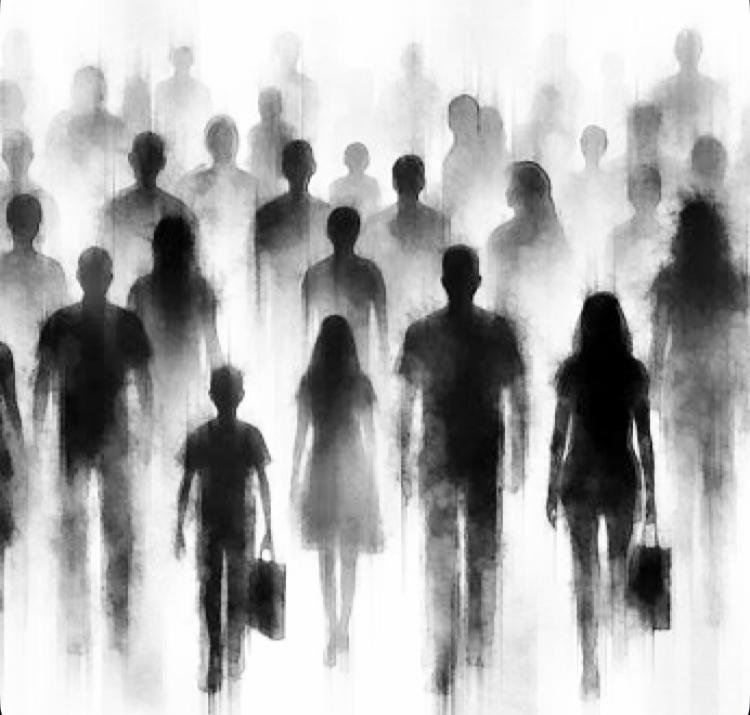Hello beings of light!
This is my first time participating here, and I'm motivated by the contest proposed by @queercoin, which presents a series of questions that invite hours and hours of dialogue based on each person's own criteria.
Fortunately, the world is diverse. And as a popular saying goes, there is everything in the Lord's vineyard. Based on the topic at hand, what would that mean? I'll try to answer it somehow.
Are human beings innately good or bad? This is the first question @queercoin poses, and it's far from easy to answer if we consider that each individual is unique and unrepeatable, and their formation is permeated by disparate factors or variables to consider. Beyond the theories that defend one criterion or another, which we won't go into because they would be too extensive, we will attempt to superficially address some details that will allow us to answer each question simultaneously.

First of all, we must determine what is good and what is bad. What is right for some may not be right for others. Each social group, or society in general, establishes guidelines and norms to be followed over time and classifies them as accepted, correct, or not, according to their conceptions. But let's not fall into that trap; let's assume the basic criterion that good encompasses everything that is, at least, morally positive and that contributes to the harmonious development of individuals and their relationships. The bad thing, then, would be anything that affects these processes or goes against them.
Personally, I believe that human beings are naturally good, generally speaking. Why do I clarify by referring to this in a general way? As a hominid animal species, we are predisposed to be empathetic with others from a very early age. Approach a child who is just days old, assume a posture of sadness, and see how they react. Do the opposite, project joy, and you'll tell me. Note that other reflexive aspects also come into play here, with neuroperceptual explanations, but I repeat, there are centuries of theories on this subject. I'm barely scratching the surface of the topic.
I digress to clarify that we will not consider extreme cases, such as sociopathies, psychopathies, or the presence of disorders with an organic basis, in relation to how they affect a person's subjective or behavioral projection.

So far, so good. But what about the characteristics that make up the developing personality of a specific individual? This is by no means a simple element, but rather quite complex in the framework of elements that shape it, such as: the individual's temperament, the character that is being forged, psychophysiological characteristics, the socio-family environment in which they develop, the different types of experiences, social relationships, how these occur, and how the individual themselves process them, for example.
Why do I barely touch on people's developing personalities? Simple: Have you ever met someone who was born in a slum, where violence is the order of the day to survive and most people engage in criminal behavior without even caring about the death of other human beings, and who decided, from a young age, not to commit crimes and remained a good person their entire life?
Or, conversely, let's say someone who was born into a family with a professional tradition, lives in a luxurious, bourgeois neighborhood, theoretically with impeccable standards of formal education, and from a young age is prone to stealing, lying, abusing children, the weak, and women. All of this without ever having seen it happen, in other words, we're not referring to behaviors reproduced through learning whose impact is social.
What have we meant to say so far? Well, that even though external conditions are created for us to be a certain way, in the end, it is we who have the capacity to decide how we are.
I may be very poor financially, but never have to steal because of it. I may have lived in a neighborhood where violence is normal, but I would never be capable of being violent toward anyone. I may have experienced many people lying to me and committing very regrettable actions toward me, but I never have to lie or engage in behaviors that lead to responding or reproducing them in the same way. Everyone can decide; it's simply that way.

Likewise, each person can decide whether or not to change their way of being, either by relearning how to process their experience and how to respond to it differently, or by deciding to do so at a given moment. How many examples are there of people who were violent in their childhood and adolescence and suddenly decide to change because they begin to think differently, and their attitude toward life and toward themselves changes completely? How many people do you know who do the opposite? In short, there is everything in the Lord's vineyard. Or not?
Tell me your impressions!
To everyone, a hug of light!



I invite you to visit the project DRIP - WITNESS NODE - BPUD

Support the witness and vote for TheBbhProject! Project carried out by @bradleyarrow

This post was partially translated using Google Translate and the images were designed and created by me using Microsoft Bing and edited in Adobe Illustrator.

¡Hola seres de luz!
Esta es la primera ocasión en la que participo acá y lo hago motivado por el concurso que nos propone @queercoin donde nos trae a colación una serie de interrogantes que invitan a horas y horas de diálogos según el criterio que pueda tener cada cual.
Afortunadamente, el mundo es diverso. Y como reza un refrán popular, hay de todo en la viña del señor. Ajustándonos al tema que nos compete en estos momentos, ¿qué significaría? Intentaré dar respuesta a ello de alguna manera.
¿Los seres humanos somos innatamente buenos o malos? Primera interrogante que nos ofrece @queercoin y que para nada es sencillo responder si se tiene en cuenta que cada individuo es único e irrepetible y su formación está permeada por disímiles factores o variables a considerar. Más allá de las teorías que defiendan uno u otro criterio, y en las que no entraremos porque resultarían demasiado extensas. Intentaremos apenas abordar superficialmente algunos detalles que nos permitan responder a la vez cada interrogante.

Primero que todo, habría que determinar qué es bueno y qué es malo. Lo que para unos es acertado, para otros no. Cada grupo social, o sociedad en general, establece pautas, normas, a seguir en el tiempo y a las que clasifica como aceptadas, correctas o no, según sus concepciones. Pero no caigamos ahí, asumamos el criterio elemental de que lo bueno encierra todo aquello que resulte, al menos, moralmente positivo y que tribute al desarrollo armónico de los individuos y sus relaciones. Lo malo, pues sería todo aquello que afecte estos procesos o que vaya en contra de los mismos.
En lo particular, soy del criterio de que el ser humano es por naturaleza bueno, de modo general. ¿Por qué aclaro refiriéndome a ello de modo general? Como especie animal homínida, estamos predispuestos a ser empáticos con el otro desde muy temprana edad. Acérquense a un niño con apenas días de nacidos, asuman una postura de tristeza y verán cómo reacciona. Hagan lo opuesto, proyecten alegría y ya me dirán. Fíjense que acá también intervienen otros aspectos reflejos con explicaciones neuroperceptuales, pero repito, teorías al respecto hay para dialogar siglos enteros. Apenas estoy tocando la superficie del tema.
Hago un paréntesis para aclarar que no tendremos en cuenta los casos extremos, dígase sociopatías, psicopatías o presencia de trastornos con un fondo orgánico en relación a cómo ello afecta la proyección subjetiva o conductual de alguna persona.

Hasta aquí, todo bien. Pero, ¿dónde quedan las características que conforman la personalidad en desarrollo del individuo específico? Elemento para nada simple, sino más bien bastante complejo en el entramado de elementos que le conforman, dígase: el temperamento del individuo, el carácter que se va forjando, las características psicofisiológicas, el entorno sociofamiliar donde se va desenvolviendo, los distintos tipos de vivencias, experiencias, relaciones sociales, el cómo se dan éstas y el cómo las procesa el propio individuo, por ejemplo.
¿Por qué apenas me refiero a la personalidad en desarrollo de las personas? Sencillo, ¿han conocido a alguien que nació en algún barrio marginal, donde la violencia está a la orden del día para sobrevivir y la mayoría de las personas reproducen conductas delictivas sin llegar a importarles incluso la muerte de otros seres humanos, y que ese alguien haya decidido, desde pequeño, no delinquir y sea una persona de bien durante toda su vida?
O, lo contrario, digamos alguien que nació en una familia de tradición profesional, reside en un barrio lujoso, burgués, en teoría con normas de educación formal impecables, y desde pequeño es dado a robar, mentir, maltratar a los pequeños, a los débiles, a las féminas. Todo esto sin que jamás lo haya visto, o sea, que no nos referimos a conductas reproducidas por aprendizaje cuya incidencia sea social.
¿Qué hemos querido decir hasta el momento? Pues que, a pesar de que las condiciones externas estén creadas para que seamos de un modo, al final somos nosotros quienes tenemos la capacidad de decidir cómo somos.
Puedo ser muy pobre económicamente, pero jamás por ello tener que robar. Puedo haber vivido en un vecindario donde la violencia impera como algo normal, pero jamás ser capaz de violentar a alguien. Puedo haber sufrido la experiencia de que muchas personas me mientan y realicen acciones bien lamentables hacia mi persona, pero jamás por ello tengo que mentir ni asumir conductas que lleven a responder o reproducirlas del mismo modo. Cada quien puede decidir, es simplemente así.

Como mismo, cada persona puede decidir si cambiar o no su manera de ser, bien sea porque reaprenda a procesar de otra manera su experiencia y el cómo responder ante ello, o porque lo determine a partir de un instante determinado. ¿Cuántos ejemplos hay de personas que han sido violentos en su niñez y adolescencia y de pronto deciden cambiar porque comienzan a pensar diferente y la postura que asumen ante la vida y para con ellos mismos da un vuelco total? ¿Cuántas personas conocen que hacen lo contrario? En fin, que hay de todo en la viña del señor. ¿O no?
¡Cuéntenme sus impresiones!
A todos, ¡un abrazo de luz!



Te invito a visitar el proyecto. DRIP - WITNESS NODE - BPUD

¡Apoya al testigo y vota por TheBbhProject! Proyecto realizado por @bradleyarrow

Esta publicación fue parcialmente traducida con Google Translate y las imágenes fueron diseñadas y creadas por mí usando Microsoft Bing y editadas en Adobe Illustrator.







